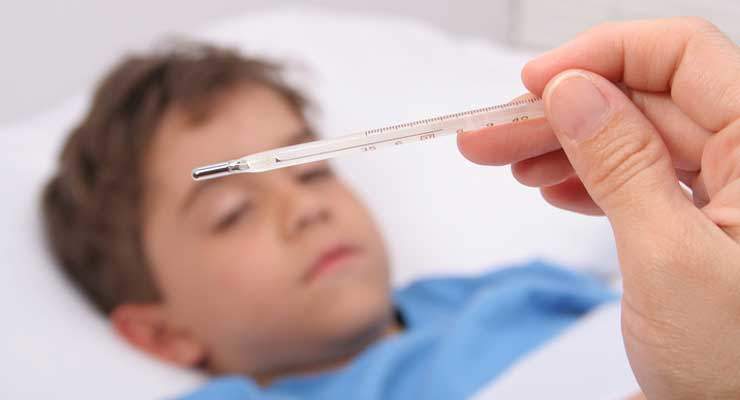While you hate to see your child feeling the least bit sick, some fevers are not as dangerous as others. As a result, they do not require the same Dr. Mom response. If your child’s temperature is just a bit elevated, you might not have any cause for concern.
Fever Ranges
Just how high your child’s temperature is makes a difference in how you respond. As AskDrSears reports, children’s fevers can fall into one of four ranges. A normal range temperature is between 97 and 99 degrees F. A low-grade fever, or mild fever, is a fever in which the child’s temperature is between 99 and 100.9 degrees F. A common fever occurs when the temperature is between 101 and 103.5 degrees F. The most serious fever classification is a high fever, in which the child’s temperature is more than 103.6 degrees F.
Impact of Age
The degree to which a mild fever should worry you depends upon your child’s age. If your child is under 6 months, a temperature elevation of any type is cause for concern and should lead you to contact your pediatrician. Once your child has passed this infant stage, a mild fever is nowhere near as big a deal and, as such, does not require the same degree of medical attention.
Common Fever Causes
Your child’s minor fever is likely the result of one of the three most common fever causes — viral infection, bacterial infection and teething, reports AskDrSears.com. If your child’s fever is the result of a viral infection, the infection will likely run its course. If the fever is a result of bacterial infection, it will likely continue to increase. Ultimately, you will need to seek medical attention. If the fever is a result of teething, your child’s tooth will surface, and his fever will drop on its own.
Necessary Treatment
A minor fever requires no medical treatment, reports AskDrSears.com. If your child complains of discomfort, treat him with pain relievers, a cool bath, a fuzzy blanket or a kiss from Mom.
Contacting your Doctor
If your child’s mild fever spikes, or if he continues to complain of discomfort, contacting your child’s doctor is a good idea. Also, if the fever continues for several days, you may want to speak to your child’s pediatrician to ensure that it is not an early sign of something a bit more serious or something that could be abated with medication.





